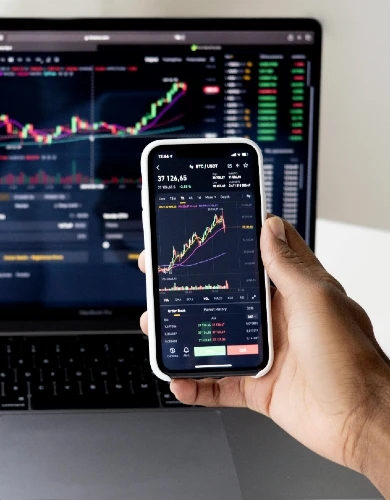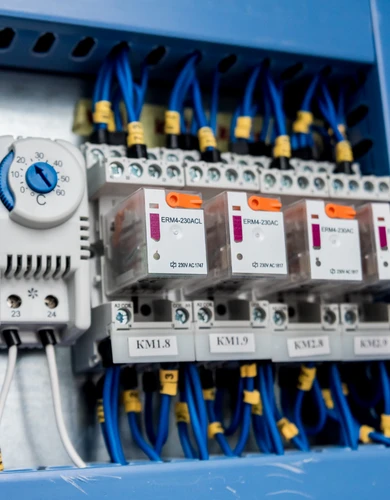Business energy procurement strategies
Business energy procurement is the process of purchasing electricity and gas for companies. The main objectives of energy procurement typically include reducing costs, securing future prices, and lowering carbon emissions.
This guide explains common business energy procurement strategies, covering both small and large companies. Here are the main sections:
- Benefits of business energy procurement strategies
- Developing a business energy procurement strategy
- Approaches to business energy procurement
- Types of energy contracts in a business energy procurement strategy
- Sustainable business energy procurement strategies
Benefits of business energy procurement strategies
Before we dive into the details of how to execute a business energy procurement strategy, we start with the three key benefits of developing an energy procurement strategy for your organisation.
Minimise business energy costs
The primary goal of all business energy procurement strategies is to reduce the purchase price of electricity and gas.
Business energy contracts contain the following main charges, which can be minimised through a well-executed procurement strategy:
Business electricity costs
Business gas costs
Mitigating energy price risk
Energy price volatility is the most significant risk in business energy procurement.
The energy crisis in 2022 saw prices increase by over 400%, leaving businesses that had not secured future energy prices exposed to rising costs.
A well-executed procurement strategy fixes the cost of electricity and gas for future years, protecting businesses against price fluctuations.
Sustainability
A business energy procurement strategy should support a business’s Corporate Social Responsibility (CSR) targets and environmental goals.
Britain’s electricity and gas supplies have a significant carbon footprint due to continued reliance on natural gas, a fossil fuel.
A business energy procurement strategy can eliminate or offset the carbon footprint associated with purchasing power.
Developing a business energy procurement strategy
Our experts discuss the key points to consider when developing a procurement strategy for your business.
Understanding energy requirements
A business energy procurement strategy can only be effective if you can accurately estimate how much electricity and gas your business will require in the future. Simply purchasing energy as and when needed using a variable tariff will expose your business to price volatility and unfavourable rates.
The best way to estimate future energy consumption is to analyse your current consumption with automatic meter readings.
For small business energy customers, consider requesting a free upgrade to a smart business energy meter to receive automatic meter readings.
Properties with larger energy requirements should already have half-hourly electricity meters and advanced business gas meters that record usage automatically.
We recommend using business energy monitoring software to analyse and forecast energy consumption. Visit our full guide to business energy consumption for more information on how to forecast energy requirements.
Set goals and priorities
When starting to plan a business energy procurement strategy, it is important to consider and agree on the following priorities:
Pricing risk
Energy procurement requires a balance between immediate cost savings and securing future price stability. Consider the potential impact of future price volatility to gauge the appropriate level of price risk.
Environmental goals
Align energy procurement with corporate sustainability targets, such as net-zero or carbon reporting goals. See more below on sustainable business energy procurement strategies.
Flexibility and scalability
It is important to ensure that energy procurement strategies have flexibility for your business’s changing operational needs and potential growth. Consider likely business changes within the next few years.
Energy market updates
Geopolitical events significantly impact the underlying costs of electricity and gas.
Analysing energy market trends is fundamental for businesses to make informed decisions regarding energy procurement.
We recommend staying updated with market developments by setting up energy market news alerts or subscribing to regular updates from your supplier.
Approaches to business energy procurement
This section highlights British businesses’ most popular strategies to procure energy supplies.
Partnering with a business energy supplier
Only licensed energy suppliers in Britain can deliver electricity and gas to commercial properties connected to the grid.
Regardless of your energy procurement strategy, you must arrange contracts with licensed commercial electricity or business gas suppliers.
It is crucial to carefully assess your chosen supplier as if they go out of business, any fixed contracts will be cancelled, impacting future energy procurement goals.
Using a business energy broker
Business energy brokers partner with multiple licensed suppliers to help businesses secure competitive energy prices.
Businesses can reduce the time required to compare business electricity prices from multiple suppliers by working with a broker. It is important to note that brokers earn a commission, which is typically included in your bills.
Larger businesses with their own procurement teams may not require a broker’s services, as they have the capacity to negotiate directly with suppliers.
Renewal management
The most effective way to minimise energy costs is to carefully avoid out-of-contract or deemed contract rates for any of your properties.
Negotiated business energy contracts are significantly cheaper than the automatic rates that apply if you do not have a contract with your supplier.
At the heart of every energy procurement strategy is ensuring that competitive contracts are secured for each MPAN and MPRN before the termination window closes.
Leveraging market competition
In the deregulated energy market, businesses can choose from various competing suppliers. At the heart of a business energy procurement strategy, it is vital to request quotations from multiple suppliers and to be willing to switch business energy suppliers to secure the best rates.
Types of energy contracts in a business energy procurement strategy
Businesses typically use three types of contracts when executing their energy procurement strategies. Let’s explore each of them in detail.
Business energy tariffs
The simplest way to secure future energy costs is to enter an energy tariff where the unit tariff cost per kWh of energy consumed is fixed throughout the contract.
Business energy suppliers offer the following tariffs that fix the unit cost per kWh of energy consumed for terms between one and five years:
- Fixed energy tariff – The unit rate per kWh is entirely fixed throughout the contract.
- Pass-through tariff – The wholesale element of energy costs is fixed throughout the contract.
💡 We specialise in helping companies find the cheapest fixed business energy tariffs on the market. Use our business energy comparison service to receive quotes today.
Corporate Purchase Price Agreements
Corporate Purchase Price Agreements (CPPAs) allow large businesses to agree to purchase electricity directly from generators, such as UK wind farms.
A CPPA enables a business to secure electricity for decades into the future and represents a tangible investment in the UK’s renewable energy infrastructure.
Purchasing electricity using a corporate PPA still requires paying a business energy supplier the TNUoS, DUoS, and BSUoS charges related to the distribution of electricity.
Future energy contract
Some business energy suppliers provide sophisticated energy procurement platforms for large business energy customers, offering real-time trading on future electricity and gas purchases.
A future energy contract is an agreement to purchase electricity or gas at an agreed price, delivered at a set future date.
This contrasts with a spot market contract, where businesses purchase energy directly from the wholesale market, with prices determined in real time.
Sustainable business energy procurement strategies
A business energy procurement strategy should support a business’s Corporate Social Responsibility (CSR) targets and environmental goals.
In this section, we will summarise how businesses can tailor their energy procurement strategies to eliminate the carbon footprint associated with their electricity and gas consumption.
Green business energy tariffs
A green business energy tariff is the easiest way for a business to purchase carbon-neutral energy supplies.
In a green tariff, your supplier will guarantee a carbon-neutral supply as follows:
- Renewable business electricity tariff – Electricity supplied will be generated from renewable energy sources, typically wind, solar, and hydropower.
- Green business electricity tariff – Electricity supplied will be generated from renewable sources and British nuclear power stations.
- Green business gas tariff – The carbon footprint associated with natural gas will be offset by carbon credits or the use of biogas.
Find out more in our guide to how green business energy tariffs are delivered.
Direct investment in renewables
Businesses can invest directly in generating their renewable power. This can be achieved in two ways:
- On-site electricity generation – Install commercial solar panels at your property and use a Smart Export Guarantee tariff to feed excess electricity back to the local distribution network operator grid.
- Off-site electricity generation – Use a Corporate PPA to invest in large-scale renewable electricity generation.
REGO purchases
Businesses can indirectly offset the carbon footprint associated with electricity and gas by purchasing and retiring Renewable Energy Guarantees of Origin (REGOs).
REGOs allow businesses to benefit from renewable energy without directly sourcing it. Each certificate represents one megawatt-hour (MWh) of electricity generated from a renewable power source.
Find out more in our guide to the Renewable Energy Guarantees of Origin (REGO) scheme.

